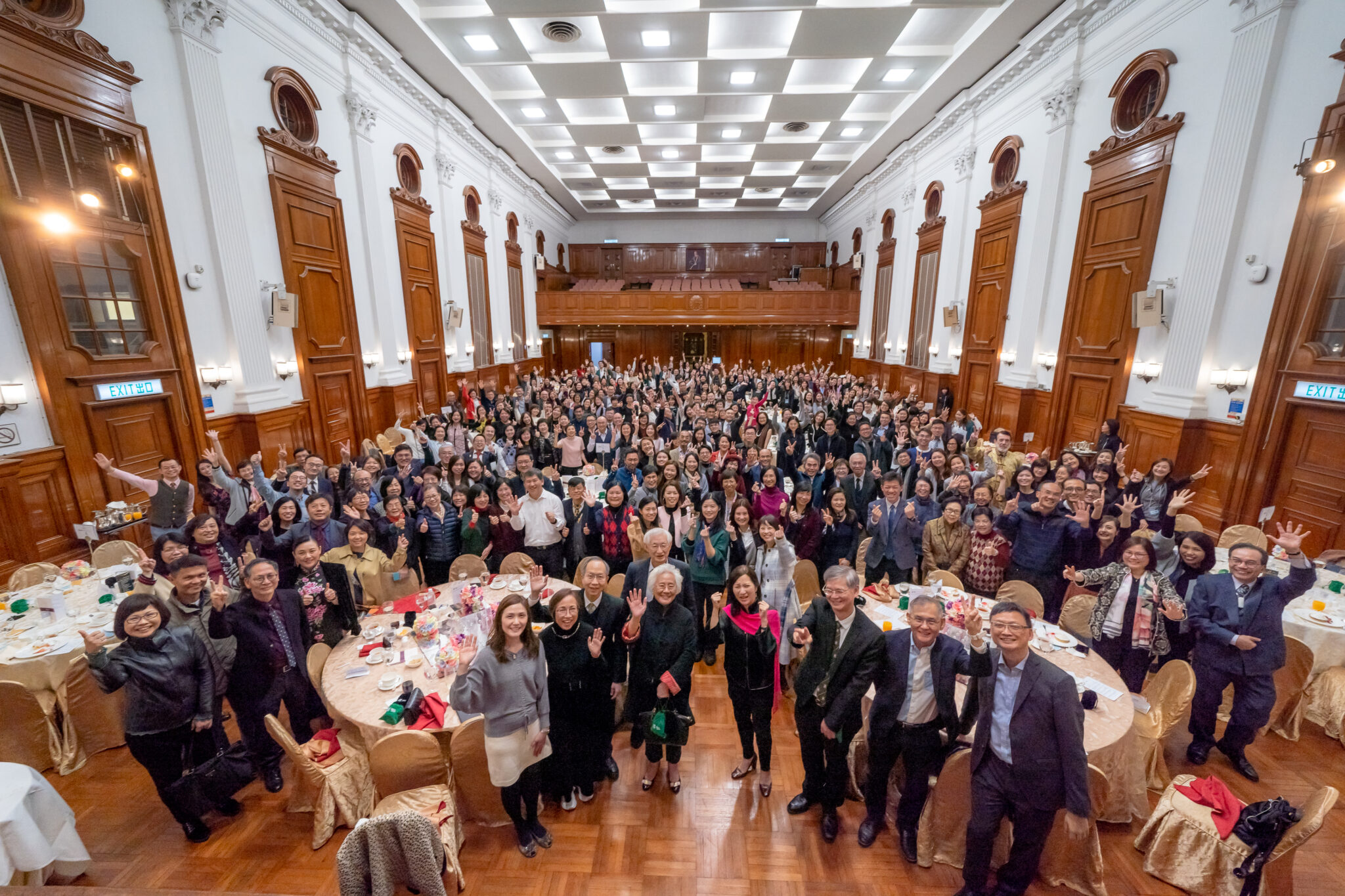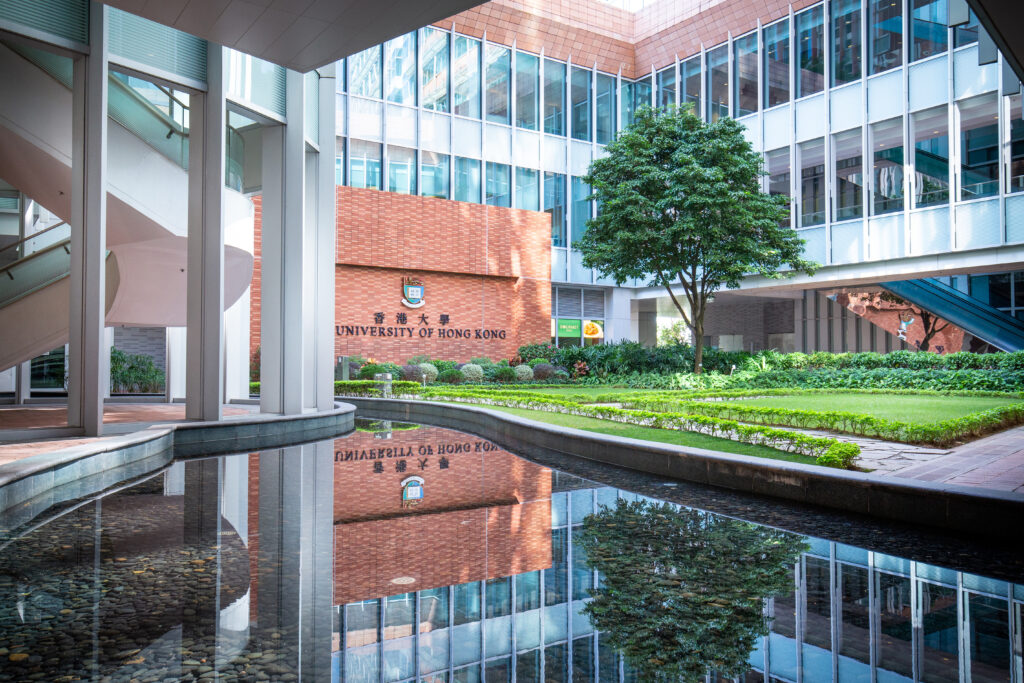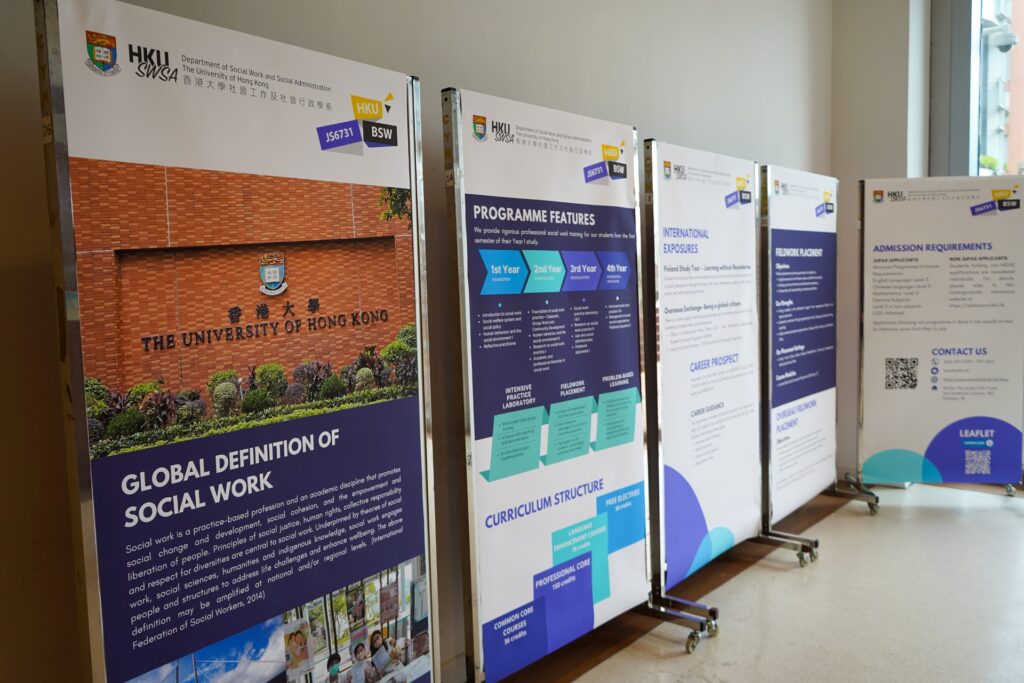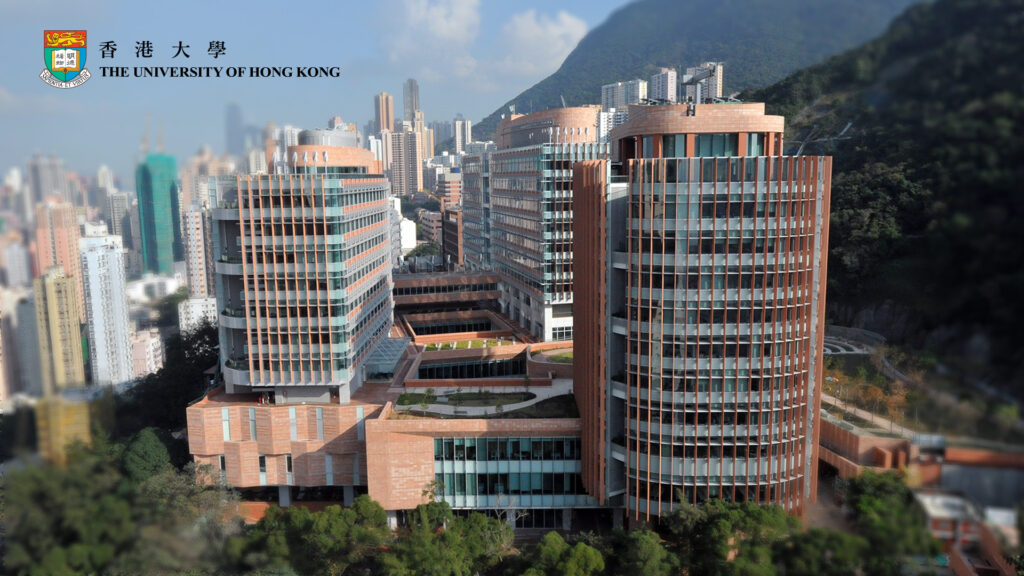Master of Expressive Arts Therapy
Director’s Message
Prof. HO T.H. Rainbow
Programme Director
The arts have been one of the greatest healing resources throughout history playing a key role deeply engrained within health traditions cross culturally: dancing for healing and rites of passage, painting for contemplation and insight, drama for communication and enactment, music for relaxation and connection, or poetry for expression.
Ever since the introduction of arts making in therapy, the arts have re-established their role in prevention and treatment, as well as, in achieving wholeness and balance. Whether skilled with a brush or new to playing a drum, everyone has a latent capacity to create; and in this process the arts serve as vessels to transform life experiences and shape/create a new way of being, which is central to the therapeutic process of expressive arts therapy.
Thirty years after the introduction of expressive arts to Hong Kong, we are proud to offer an exciting, innovative and creative training programme, the Master of Expressive Arts Therapy. As the first-of-its-kind programme in Hong Kong and Asia, we will train professionals as expressive arts therapy professionals in healthcare, education and community settings. With increased interest in the arts for health, wellness and growth, now is the perfect time for this newest addition to the family of our Department of Social Work and Social Administration.
Objectives
The programme provides multi-modality (multiple arts forms) training in expressive arts therapy in the fields of healthcare, education, and community development. It aims to cultivate competent clinical and educational specialists ready to lead the development of the field of expressive arts therapy in Hong Kong and Asia.
The objectives of the programme are:
- to advance expressive arts therapy knowledge exchange and training development in Hong Kong;
- to ensure that students are grounded in evidence-based expressive arts therapy practice and contributing to research development; and
- to serve as the hub for international collaboration and local inter-disciplinary training in expressive arts therapy
Learning Outcomes
After the completion of this programme, students should be able to:
- Critical intellectual enquiry and acquiring up-to-date knowledge and research skills in expressive arts therapy;
- Application of knowledge and research skills to practice or theoretical exploration in expressive arts therapy, demonstrating originality and creativity;
- Tackling novel situations and ill-defined problems with expressive arts therapy;
- Collaboration and communication of expressive arts therapy knowledge to specialists and the general public;
- Awareness of cultural context and adherence to personal and professional ethics in expressive arts therapy; and
- Enhancement of leadership and advocacy skills in expressive arts therapy.
Who will benefit from the programme
Healthcare and social service professionals as well as artists and arts educators who wish to become adept in implementing various forms of expressive arts and apply the transformative process of creativity to enable a process of change benefiting clients to complement their clinical and educational practices. This programme will be beneficial for those who may aspire to work in hospitals, schools, social service centres, and agencies serving the needs for children, youth, adult and the elderly with disabilities, emotional/ or learning challenges, chronic illness, psychiatric disorders and personal issues.
International Recognition
Graduates are eligible for professional registration as an Arts Therapist with theAustralian, New Zealand and Asian Creative Arts Therapies Association (ANZACATA) upon completion of 750 supervised practicum hours.
They are also eligible to seek qualification as a Registered Expressive Arts Therapist (REAT) with theInternational Expressive Arts Therapy Association (IEATA) after fulfilling 1,000 supervised practice hours, to be counted after graduation.
Details for registration requirements are contained in the following links:
- REAT of the International Expressive Arts Therapy Association (IEATA)
- Full Professional Member of the Australian, New Zealand and Asian Creative Arts Therapies Association (ANZACATA)
The curriculum is also aligned with the regulations stipulated by the Health Professions Council of the United Kingdom, but generally UK professional registration is only granted to graduates from UK institutions.
Cultural Values and Holistic Health
The programme provides students with the academic and practical experience necessary to be adept practitioners and engage in effective cross-disciplinary practice. In addition to the international standards, there are two key principles that guide the design of the programme:
- Cultural Values
The first principle strives to integrate East-West learning. Accordingly, it pays special attention to the application of expressive arts therapy within local culture and with reference to Chinese arts. - Holistic Health
The second principle strives to demonstrate the utility of expressive arts therapy, not only in the prevention of illness, but also in the promotion of holistic health and community development.
Multi-disciplinary Application
As expressive arts therapy can be integrated into a range of clinical, educational and community settings, the programme is designed for a broad spectrum of students:
- Healthcare professionals such as doctors, nurses, social workers, psychologists, counsellors and pastoral counsellors, rehabilitation and occupational therapists who wish to acquire expressive arts therapy skills to complement their clinical practice;
- Teachers such as art, music, dance, drama and physical education teachers, as well as, special education teachers; and
- Professional artists of all disciplines who wish to apply their creative arts in clinical and educational settings.
Experiential Learning
Experiential learning enables students to critically evaluate their client populations to determine the best ways to serve them through the intentional use of expressive arts therapy. Students will develop an appreciation and respect for how personally engaging in the creative process can lead to opportunities for critical reflection and professional development. They will also have the opportunity to learn from educators from around the world, while at the same time serving as ambassadors for expressive arts therapy that is unique to Asian values and culture. Students will become confident in traditional expressive arts therapy from the West and leaders in a unique Asian-based manner of practice.
International Exposure
The programme is uniquely situated as a gateway to research collaboration and educational exchange of expressive arts therapy in Hong Kong, Asia and the world. Given the status of The University of Hong Kong and a growing interest in expressive arts therapy, the programme is well suited to engage with government agencies, community organizations and our international peers to contribute to the general body of research in expressive arts therapy. For example, current research projects in the US, such as the effects of expressive arts therapy on trauma, neurobiology, and the elderly, can be enhanced by international participation. By cooperating on such projects, we increase knowledge gain, while being mindful of regional and cultural considerations. As an English language curriculum in a major educational institution, we are able to be involved in international exchanges for classroom learning and practicum experience.
We offer both two-year full-time and three-year part-time study options.
Students are required to complete 10 compulsory courses, 2 elective courses, a practicum of 500 to 750 hours and a dissertation during their studies. Classes are conducted during weekday evenings and occasional weekends.
Students may be approved to enroll up to 2 elective courses from selected elective courses offered by other taught postgraduate curriculum of the Department as substitute of elective courses. The substitute must be relevant to expressive arts therapy and comprise the equivalent of at least 36 contact hours.
(1) Compulsory Courses
As the introductory course in expressive arts therapy, students will be immersed in the development, history and overview of expressive arts therapy. Students will be grounded in the foundational theories of the field by learning to appreciate and integrate a diverse array of psychotherapy, philosophical, spiritual and educational concepts. This initial course will engage students in a critical reflection of the ancient roots and more contemporary influences on the place of the arts in medicine to understand the philosophical underpinnings that guide expressive arts therapist. They will come to see the place of expressive arts therapy in the overall context of health promotion, educational achievement and community development, and response to current social and environmental challenges. Assessment: 100% coursework.
Expressive arts therapists frequently find themselves working in diverse settings across healthcare, educational and community sectors. Astute practitioners often need to adapt to various work cultures while maintaining the core principles of the profession. This course primarily focuses on essential questions practitioners need to address when applying expressive arts therapy to various workplaces– such as clinics, hospitals, schools, and community centers. In addition to setting considerations, expressive arts therapists need to become culturally aware and competent to effectively work with clients from socially and culturally diverse populations. Students will learn how to conceptualize and formulate objectives, interventions, and evaluation methods to match the needs of various populations within different settings. Assessment: 100% coursework.
The main task of the expressive arts therapist is to apply the transformative process of creativity to the benefit of a client. At the root of successful expressive arts therapy is to foster empathic relationships, empower client strengths, nurture creativity and identify possible obstacles to engaging with clients. The focus of this course is learning the soft skills on how to form and sustain a therapeutic relationship with an individual in expressive arts therapy. Students will learn the stages of the expressive arts therapy process that include beginning/introductory,
middle/working, and ending/termination stages, as well as, how those stages affect intervention design. Major emphases will be on facilitating active imagination and denote the importance of embodied empathy whilst engaging with a client in what constitutes the triangular relationship among the expressive arts therapist, client and art product to further treatment. Client-centered processes will form the foundation for engaging clients and inform culturally-competent, phenomenological based methods of interpretation and responsive art making. Cultivating self-awareness and retaining an accepting stance for clients, students will examine the intricacies and benefits of expressive arts therapy, and how the intimate therapeutic relationship coupled with the creative process can help to bring about change with individual clients. Students will examine how an expressive arts therapist engages with individuals in order to prepare them for practicum with emphasis on in-class skills lab tutorials to ground key concepts, theories, and techniques. Assessment: 100% coursework.
Group dynamics bring their own challenges and opportunities to expressive arts therapy. Members of a group can influence creative expression in subtle or overt ways. The carefully attuned group expressive arts therapist has strong core knowledge in theories of group dynamics and how artistic process affects them. Particular attention will be paid to how to help group members provide verbal and arts-based feedback to each other within a safe and secure environment. Considerations for how to effectively facilitate group expressive arts therapy in terms of goals, structure, and outcomes will be further discussed. Learning to discern and identify systems and patterns, students will gain competency for how to further group process through the intentional application of expressive arts therapy. Specific strategies for engaging unwilling or disruptive clients will also be included. Assessment: 100% coursework.
Expressive arts therapists constantly have to act in ways that take into account what is best for their clients, agencies, and society. When sessions do not go according to prescribed plans, there is a need to make decisions in ambiguous situations when multiple courses of action may be considered beneficial or detrimental depending on the context. By analyzing the codes of ethics of leading expressive arts therapy associations alongside the codes of practices of other disciplines that guide practice in Hong Kong, students will understand how to use them to inform their practice. There will be specific emphasis on core matters related to expressive arts therapy, such as confidentiality, duty to warn and protect, progress notes, storing artwork, and maintaining records. The course will encourage students to think critically, while acting intentionally, especially in the face of needing to adhere to multiple sets of ethical codes and in various work settings. Assessment: 100% coursework.
The course equips students with a range of knowledge and essential skills in conducting clinical assessment. The course introduces students to the principles and techniques they required in history-taking, conducting mental state examination, deriving evidence-based and multidimensional case formulation, as well as deploying strategic and holistic treatment plan for common mental health issues. To enhance students’ awareness and critical appraisals of current issues related to assessment in the
clinical settings, professional issues related to assessment in the clinical setting will be discussed with reference to up-to-date evidence in the field. Going beyond the medical model of assessment, this course adopts a systemic, bio-psycho-social perspective on mental health issues by considering factors predisposing, precipitating, and perpetuating the presenting problems. In addition, to broaden the student's understanding of clinical assessment, state-of-the-art and evidence-based assessment practices using different art modalities will also be introduced. Assessment: 100% coursework
This course examines psychological and artistic development across the life span from infancy to old age. Individual, social, cultural, and familial conditions affecting growth at different stages in the life cycle are integrated with how expressive arts therapy supports developmental tasks. Human development will also be analyzed as a metaphor for archetypal development at all ages. Assessment: 100% coursework.
One of the important tenets of expressive arts therapy involves a skills set that enables meaningful and purposeful dialogue between a therapist and a client. Polishing a solid set of essential skills is one of the ingredients of an effective clinical practice. This course examines verbal and non-verbal communication and the basic micro-skills in counselling and psychotherapy to understand how the role of these skills can enable a process of change for clients. Students will be equipped to apply the knowledge of such micro-skills into future clinical practice in expressive arts therapy. Students are encouraged to participate actively in group discussion and role-play. Emphasis is placed on the cultivation of critical, and reflective thoughts through reading, discussion and experiential learning. Assessment: 100% coursework
This graduate level course will discuss past and current research regarding theoretical, clinical and experimental perspectives of the study of psychological abnormality. Emphasis is on classification, etiology, assessment and accepted treatment of major categories of mental disorders described in the Diagnostic and Statistical Manual (DSM) of the American Psychiatric Association, Version 5. In addition, the course also aims to provide an appreciation for the incomplete nature of our understanding of mental illness. A variety of in-class exercises – including small group discussions and video tapes are used to understand mental disorders. Controversial and culturally-relevant issues, especially with reference to the Chinese context, in abnormal psychology will also be explored and discussed. Case examples will be shared to enhance students’ learning. Assessment: 100% coursework.
This course covers the basic principles of research methods in behavioral science and equips students with the basic knowledge to become critical consumers of scientific literature. It covers basic quantitative and qualitative research methods and research ethics using examples of real-life research projects. The latest development and trends in social science research methods and specific approaches in behavioral health will also be introduced. Students are expected to acquire the basic skills in offering critical appraisals on others’ research work and drafting a research proposal in which classroom learning can be applied to practical examples in behavioral health. Assessment: 100% coursework.
(2) Elective Courses *(Select 2 Courses)
Through both listening to and actively making music, the intentional application of sound and music in therapy has been used for a variety of purposes. Expressive arts therapists who wish to use music in treatment have to become aware of how the properties of rhythm, pitch, and tempo affect all levels of healing from expression to relaxation. By increasing comfort with a variety of musical instruments, genres and styles, students can identify when to offer specific interventions to advance therapy and healing. In becoming secure in the history and foundational theories of the field of music therapy, practitioners can locate their work in a larger theoretical context, while being mindful of cultural variances and considerations. Assessment: 100% coursework.
Theatre and dramatic activity have often been used to communicate essential truths and to express particular values. Within the context of therapy, drama allows clients to recreate life experiences, imagine new ones, and experiment with alternate endings and choices. Through re-enactment or witnessing others tell one’s story, acting is essential modality of healing. Understanding the history and theory of the fields of drama therapy while taking into consideration such activities as improvisation or pantomime can learn to offer drama in therapeutic and educational settings. Developing cultural sensitivity, self-awareness and critical appreciation will allow students to be competent in offering drama activities with clients. Assessment: 100% coursework.
This multifaceted course emphasizes theories, hands-on techniques, and application of art therapy knowledge and skills. It is designed for helping service professionals, educators, and artists to learn about the practice and profession of art therapy. The course content covers the history, theories, and application of art therapy with various populations. Novel art therapy approaches, the use of unconventional art materials in clinical settings, and cutting-edge theories will be highlighted in lectures to train students in a key role of using visual art modality as a helping tool in their fields. In addition to lectures and discussions, students will have ample time to participate in experiential art workshops, immersing themselves in the creative and therapeutic process of art-making. Although this course does not qualify students to practice art therapy, students will gain awareness of art in therapeutic settings and how to ethically apply art making in their work settings. Assessment: 100% coursework.
As one of the modalities engaged by creative and expressive arts therapists, dance and movement allow individuals to express, communicate, and engage in healing through their bodies. Engaged in a variety of clinical and educational settings, dance and movement can be engaged as effective nonverbal interventions. In order to be able to use it effectively, practitioners must be grounded in anatomy, comfortable with their own body awareness, and attuned to the artistic, social, and cultural influences that affect movement. By exploring the history of the field of dance and movement therapy and the various ways to involve the body in
therapy, students will be able to use dance and/or movement as a way to help facilitate the process during interventions with clinical and non-clinical populations. Assessment: 100% coursework.
The objective of the module is to introduce the student to the principles and practice of play therapy and its application to the counseling and psychotherapy for children, adolescents and families. At the end of the course, the students will have an introduction of the history and development of play therapy, an understanding of various theoretical models of play therapy, rationale for the use of play in therapy, and phrase of the client’s progress in play therapy. Practice material will be provided including how to development therapeutic rapport, conduct a play based assessment, setting up of a playroom and the selection of therapeutic play materials. Best practice tips on engaging the client, recording keeping and other ethical issues will be discussed. Assessment: 100% coursework
Death is an inevitable life experience for everyone. Death-related problem is one of the commonest issues that clients brought to counseling, but is also rated as the most uncomfortable scenario by beginning counselors. This course offers a basic orientation to the knowledge and intervention approaches in working with death-related situations, including end of life care and bereavement counseling. Major theories and models related to death, dying and bereavement would be introduced. Corresponding clinical implications and practical work approaches would also be highlighted. Apart from the knowledge and skills, the course also emphasizes on personal exploration and review on one's attitudes toward life and death issues. It is hoped that students are better equipped with knowledge competence, practice competence as well as self competence in working with death, dying and bereavement. Assessment: 100% coursework
Positive Psychology emphasizes the discovery and cultivation of human strengths and potential for a flourished life, and strength-based interventions include counseling and therapy models that foster psychological well-being and reduce distress and symptoms in clients. This course critically reviews the theory and practice of positive psychology, including the study of happiness, character strengths, optimism, resilience, compassion, meaning, goals, flow, creativity and hope and their relevance to psychological health and psychotherapy, as well as strength-oriented interventions which include mindfulness-based, compassion-based and valued-based models. The cultural relevance of Positive Psychology and strength-based interventions will also be examined. Assessment: 100% coursework
* Not all elective courses will necessarily be offered in a given year.
(3) Practicum and Dissertation
The clinical practicum focuses on the integration of theory into practice
with expressive arts therapy. Students engage in approximately 500 to 750 practicum hours of prescribed work in a clinical internship with regular supervision. A practice supervisor will be assigned to supervise the student’s clinical work, provide both informal and formal feedback and to facilitate completion of the practicum report. The report should essentially be an evaluation of the clinical application of behavioral intervention provided by the student. Individual and group supervision will be provided. Assessment: 100% coursework
Students are expected to complete a scholarly dissertation in the form of a research study or an in-depth case study that demonstrates insights for professional practice. The length of dissertation should not exceed 20,000 words. The title of the dissertation shall be submitted for approval by not later than March 31 of the final academic year of study, and the dissertation shall be presented by not later than August 1 of the final academic year of study. Assessment: 100% coursework
Practicum
The practicum will take place in the second year for full-time students or during the second and the third year for part-time students. The practicum comprises 500 to 750 hours of prescribed work in healthcare, education, or community settings. These hours comply with the regulations set by the IEATA and/or ANZACATA. Graduates are eligible for professional membership of the ANZACATA upon completion of 750 supervised practicum hours.
OBJECTIVES OF PRACTICUM
TO ACQUAINT
To acquaint students with expressive arts therapy values and assumptions
TO EMBARK
To embark on a process of continuous self-assessment and self-analysis for the purpose of learning
TO ACQUIRE
To acquire basic professional helping skills
TO DEVELOP
To develop a professional stance and attitude in their work
Students may complete their practicum requirements in the healthcare, education or community settings in which they are employed. Other students will be assigned a placement in one of the Department of Social Work and Social Administration’s and the Centre on Behavioral Health’s collaborating partner sites.
Example of participating sites:
- Baptist Oi Kwan Social Service
- Caritas Hong Kong
- Centre on Behavioral Health (Expressive Arts Clinic)
- Community Rehabilitation Network
- Fu Hong Society
- Harmony House
- Heep Hong Society
- Hong Chi Association
- Hong Kong Christian Service
- Hong Kong Sheng Kung Hui Welfare Council Limited
- Jockey Club Centre for Positive Ageing
- Nesbitt Centre
- New Home Association
- New Life Psychiatric Rehabilitation Association
- Providence Garden for Rehab
- Sovereign Art Foundation
- St. James’ Settlement
- Suicide Prevention Services
- The Hong Kong Society for Rehabilitation
- The Mental Health Association of Hong Kong
- The Richmond Fellowship of Hong Kong
- The Society of Rehabilitation and Crime Prevention
- Tuen Mun Hospital
- Tung Wah Group Hospital (Elderly Service) … and more
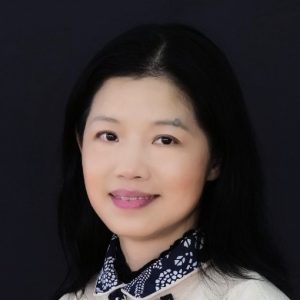
Prof. Rainbow T.H. Ho
Registered and Board Certified Dance Movement Therapist (USA)
Registered Arts Therapist (USA)(Australia & New Zealand)
Registered Somatic Movement Therapist / Educator (USA)
Certified Group Psychotherapist (USA)
Certified Movement Analyst (USA)
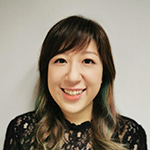
Ms. Cindy C.L. Yeung
Registered Arts Therapist (AThR, ANZACATA)
ANZACATA Approved Supervisor
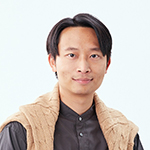
Mr. Terrence T.K. Zee
Registered Arts Therapist (AThR, ANZACATA)
Certified Focusing Professional: Specialization in FOAT® (TIFI)
Certified FOAT ® Practitioner
Focusing-Oriented Expressive Arts Therapist
ANZACATA Approved Supervisor

Ms. Julia C. Byrne
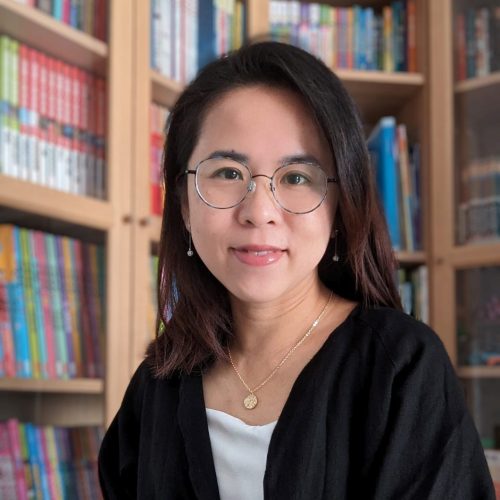
Ms. Adeline L.H. Chan
NADTA Board Certified Trainer (USA)
HCPC Registered Drama Therapist (UK)
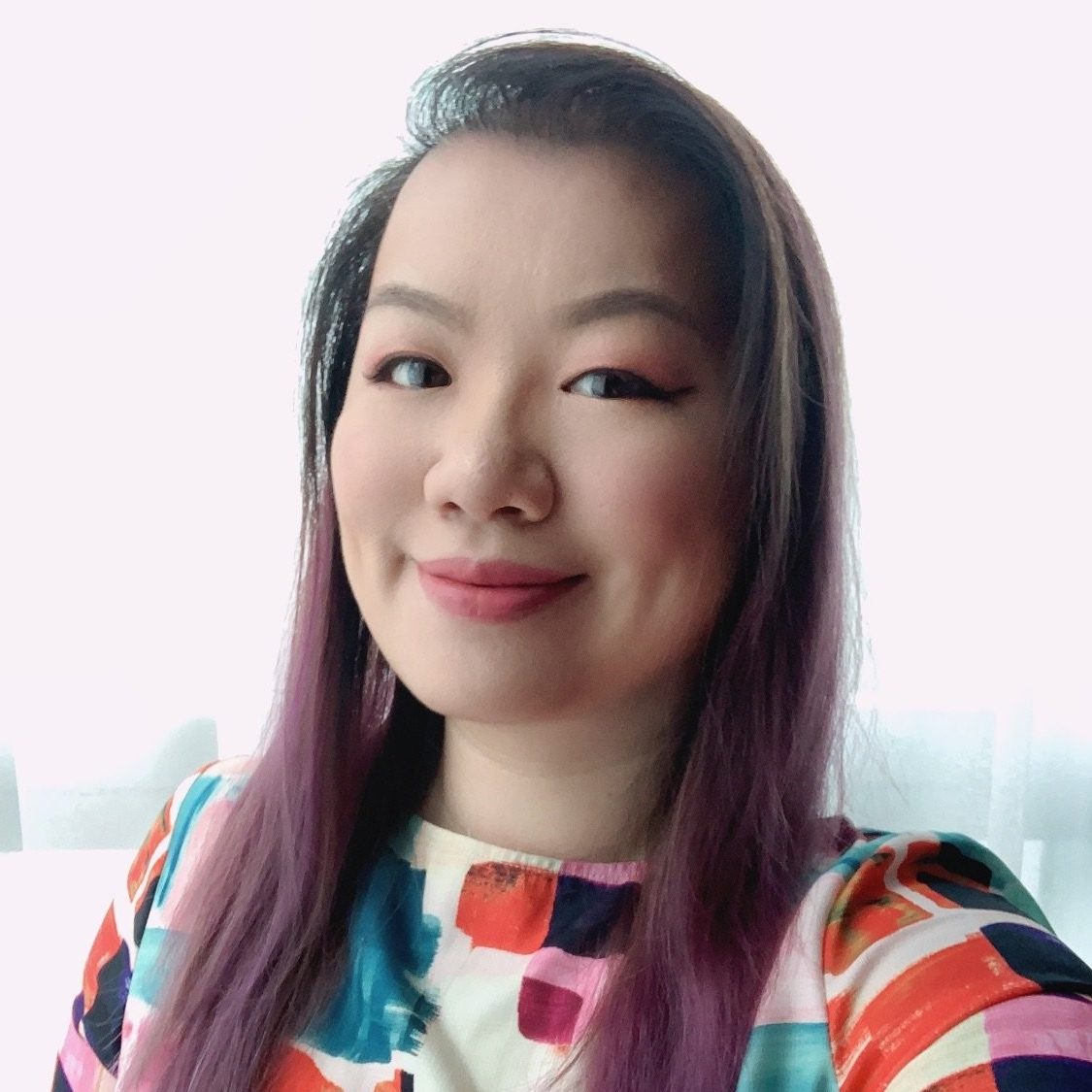
Ms. Bianca L.C. Lee
Licensed Clinical Professional Counselor (USA)
Licensed Mental Health Counselor (USA)
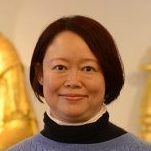
Ms. Yasmin Y.C. Li
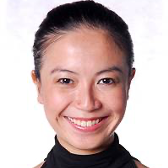
Ms. Candy H.Y. Lo
Registered Drama Therapist/ Board Certified Trainer (US)
Certified Child Life Specialist (US)
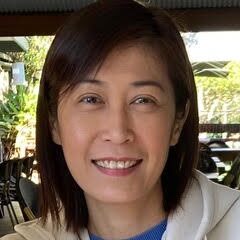
Ms. Joyce S.Y. Chan
Registered Counsellor & Approved Supervisor (Australia)
Registered Play Therapist-Supervisor (Australia)
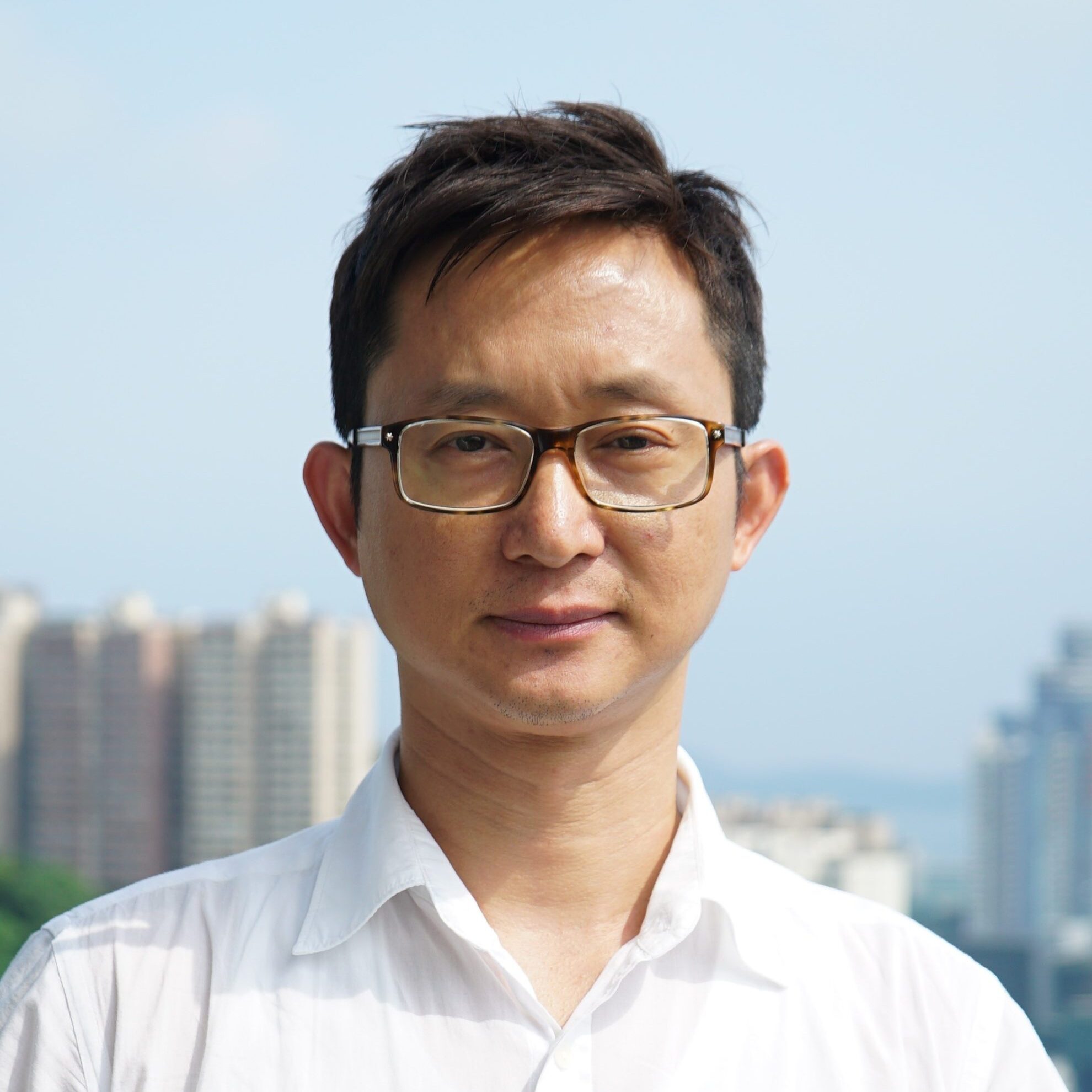
Dr. Joshua K.M. Nan
Registered Social Worker (HK)

Dr. Adrian H.Y. Wan
Certified Mindful Self-Compassion Teacher, CMSC
MSC Informed Compassion-based Psychotherapist, CMSC
Certified in Thanatology (Death, Dying & Bereavement), ADEC
Certified Zentangle® Teacher (CZT)
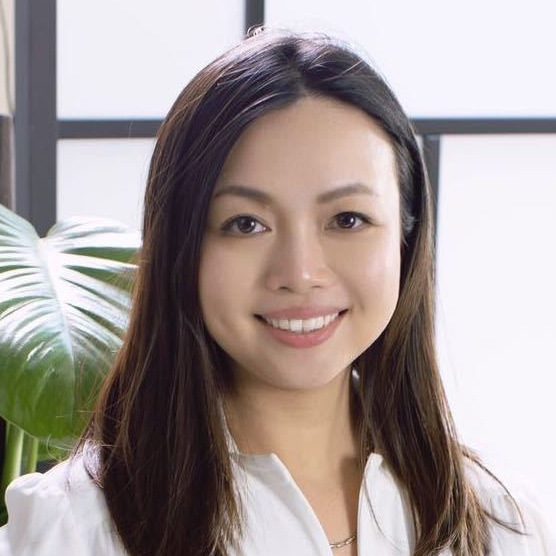
Dr. Candice Ling Y.M. Powell
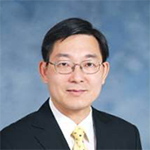
Dr. Anthony K.K. Tong
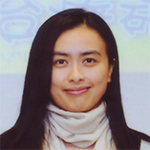
Ms. Agnes F. Tin
Fellow in Thanatology (USA)
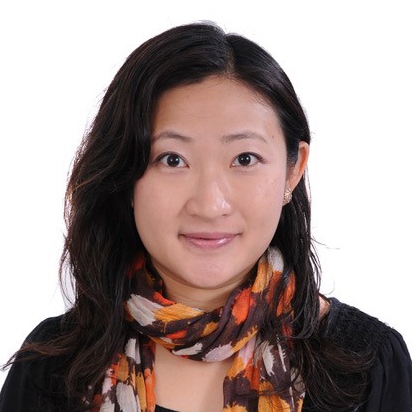
Ms. Joanna C.N. To
Registered Arts Therapist & Approved Supervisor (Australia & New Zealand)
MARI® Practitioner
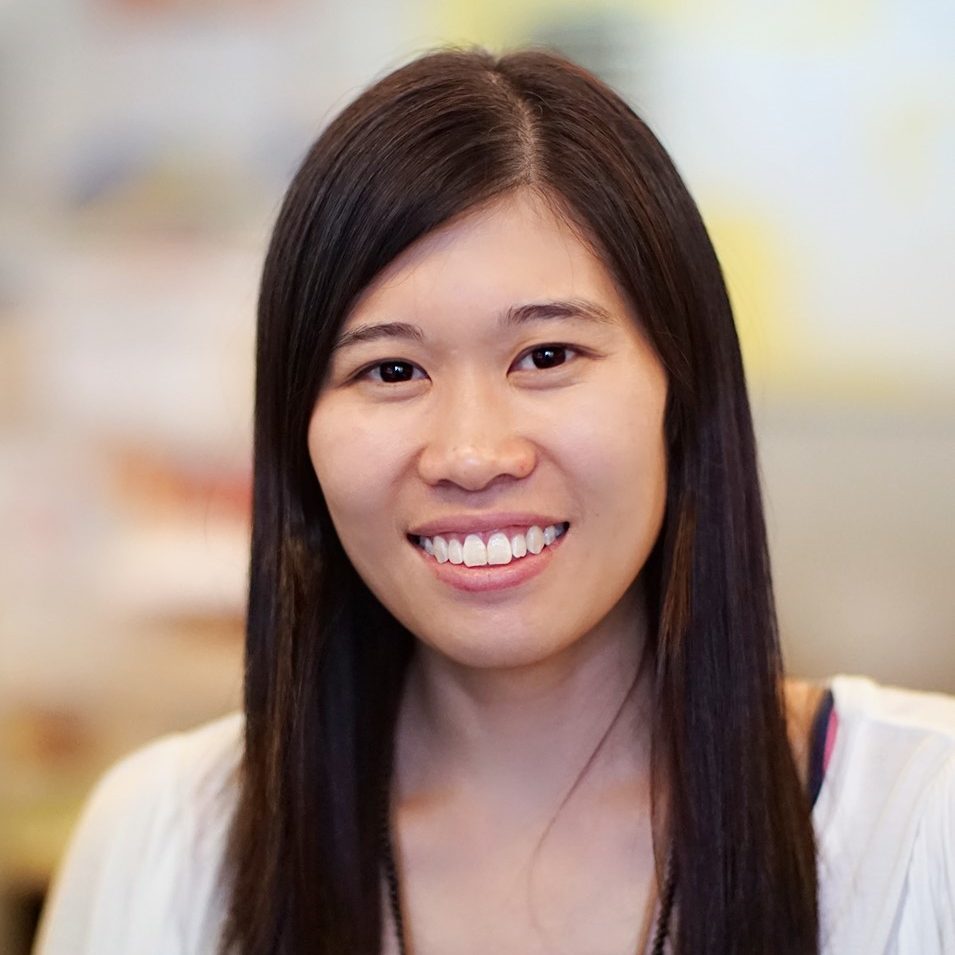
Ms. Katie S.Y. Pang
Registered Arts Therapist (Australia & New Zealand)
Certified in Thanatology (Death, Dying & Bereavement), ADEC
Students’ engagement in community project
Yau Shing-mu, current student
After finishing a government job in 2018, Yau began to study Expressive Arts Therapy, helping others express emotions through arts. Such therapy is unique, helping clients reflect on themselves, discover talent and irrigate their own personal growth. Art is more than an end in itself. It allows the artist, the singer, the poet, the dancer, to follow a path without any given route.
Students’ Voices

Expressive Arts Therapy is an alternative treatment modality I can offer to suitable clients. Soft skills in Expressive Arts Therapy can be applied to my daily interaction with my clients during consultations. I become a better psychiatrist as I’m now equipped with more professional skills and I can understand their needs better from different perspectives. I am now a psychiatrist-art therapist to act as a bridge between the two fields of professionals.
Candy Wong

This programme helps me to understand and communicate with my clients better in an open and fun manner, and it’s easier and more open for many of them to start the therapy. It’s my second career as an expressive arts therapist, it equipped and prepared me with necessary skills, more importantly, throughout the process, I understand there are many options and areas that could choose, use and adopt to different varieties of population that I am serving.
Yau Fi Fi

Completing this programme has enabled me to accomplish my aspiration to assist children and adolescents with their mental health through the powerful modalities of the arts. This can provide myriad ways for self-expression when words are not found or enough. The practicing arts therapists teaching staff have given me valuable learning experiences as their doors are always open for support and advice. I have also appreciated the guest lecturers from around the world that have enriched my experience.
Melissa Jupp

This programme not only has enriched my knowledge base in expressive arts therapy, it has also connected me with a bunch of great cohort with different professional background journey and deepening my personal experience on this journey of becoming an expressive arts therapist. I am very lucky to have encountered resourceful and kind-hearted cohort coming from diverse professional backgrounds, such as educational psychologist, social workers, teachers and practicing artists. The reflective discussion and exchange we shared in the program made us companions on this collective and transformative journey of becoming expressive arts therapist.
Jessica Kong

This programme is where you can meet artists, performers, business people, educators and even scientists from different cultures, and go through a journey together to become therapists. Healing, in the modern world, is both art and science. Being a therapist requires both a kind heart with the capacity to accept differences and a creative mind with textbook and real-world knowledge. It was from the exchanges with my fellow classmates and teachers that I began to find the balance.
Charity Fok

Without Human Beings, there will be no Art. This programme is more than a career path, it is a vocational calling to those who believe in the healing power of Art. It transforms the misconception that creating or appreciating art is only for the artists/elite/academia. This program inspire Art’s intrinsic qualities to permeate invisible barriers, cultivate imaginations, open doors to different cultures, connect all walks of life, create hope and most of all, to bridge between The Study of the Soul (Psychology) and The Language of the Soul (Arts).
AMA

The programme’s rich hands-on practice and theoretical rigor created a truly transformative experience, while its supportive, diverse community made the learning process joyful as well.
Sunee H. Markosov

Through the study programme, I’ve become even more committed to the Expressive Arts Therapy that there is a way of promoting active engagement and the sense of well-being in life. I am strengthened to actively promote life uniqueness and inclusiveness as the key attributes of human beings and the organizations; engage the people in the person-directed care environment with the nurturance of body-mind-spirit, and forge active and creative arts connections to the broader community.
Vennus Ho

The programme is resourceful in helping us to develop sense in expanding clients’ repertoire. It is innovative, creative and the faculty is very helpful in helping us to train us with using an integrated approach.
Isabel Li

By doing artworks, transformations happened when new insights were gained. Besides, the courses enable me to re-appreciate myself as well as others as very unique aesthetic human beings.
Stella Lam

It is the place where Eastern and Western cultures and philosophies are adopted in the research and application of expressive arts therapy
Candace Leung

The programme has an emphasis on learning in consideration of Asian cultures, which would be applicable for me in my work. And there are students from a wide range of fields and backgrounds to learn from.
Cheryl Lee

I can learn multiple arts forms of expression and experience its benefits for healing through arts making.
Snowy Lam

I feel that the instructors here are very passionate. They all have lots of experiences in arts and helping others.
Kevin Lam
Applicants shall hold a Bachelor's degree of HKU or an equivalent qualification from a comparable institution, and preferably have a minimum of two years of relevant post-qualification working experience. Candidates with qualifications other than a Bachelor's degree will be considered on their individual merits. Qualifying examinations to test the applicants' abilities to follow the prescribed courses and/or interviews may be conducted.
Applicants with qualifications from a university or comparable institution outside Hong Kong where the language of teaching or examination is not English are required, unless exceptionally exempted, to obtain:
- a score of 550 or above (paper-based test) or 80 or above (internet-based test) in the Test of English as a Foreign Language (TOEFL); or
- a minimum overall band of 6 with no subtest lower than 5.5 in the International English Language Testing System (IELTS); or
- grade C or above in either the Overseas General Certificate of Education, the International General Certificate of Secondary Education, or the Cambridge Test of Proficiency in English Language.
(TOEFL applicants should request the Educational Testing Service (ETS) to send an official score report to the University [TOEFL code 9671] direct.)
To apply for the Master of Expressive Arts Therapy programme, please apply via https://admissions.hku.hk/tpg/.
Portfolio and Personal Essays
Applicants should complete the parts of (a) portfolio descriptions; and (b) personal essays in the online application. Your portfolio (in USB format) should be submitted by the deadline of online application.
(a) Preparation for your portfolio
Your portfolio should include 3-10 digital photographs or videos in USB format that showcase art, dance/movement, music, drama or poetry that you created. It should demonstrate your proficiency in at least one arts form. The arts chosen may demonstrate your skills, but the arts should represent and/or express your understanding or response to some experiences. Some of your chosen pieces may pertain to your personal essay #1.
In addition, you may choose to include examples of traditional or cultural arts if they pertain to your portfolio pieces, or links to your philosophy towards health and well-being.
Please include a short description of your chosen pieces.
Kindly list the title of your pieces in your portfolio, along with the specified art modality used, date of creation, and other details such as dimensions. (See table below)
| Title of Arts | Type of Arts (visual art, dance/movement, music, drama, poetry; for visual art, please also provide the type of art materials used) | Date of Creation (maybe approximate) | Dimensions (for visual art, provide length, width, depth; for poetry, provide number of stanzas or pages; for other arts forms, provide time duration) |
|---|---|---|---|
Please mark down your application number on your portfolio (in USB format) and post it to Room 706, The Jockey Club Tower, Centennial Campus, HKU by the deadline of the online application.
(b) Preparation of your personal essays
Applicants should respond to the following questions in completing the online application.
- Please describe your personal experience of creating and being involved in the arts (maybe one arts form or many). Refer to selections from your portfolio where relevant with specific reference to your personal understanding of your arts and what you have learned about yourself, your relationships and/or the world through the arts-making process.
- Please describe your philosophy of the value of using the expressive arts for therapy and/or wellness in healthcare, education and/or community settings.
- Please indicate an area of practice and/or research interest that you want to work on upon completion of the programme.
- In what ways will your agency and/or your family and friends support your study? (Financial support may be one aspect, but you may wish to expand upon other areas of support. What are your ideas around providing yourself with personal well-being during the proposed course of study?)
Word Requirement
There is no word requirement assigned to your 4 personal essays. The length of your essays is based upon your discretion, but keep in mind that comprehensive responses to each essay question would be deemed important.
Supporting Documents
Please refer to the guidelines.
2026-27 admission
2-year full-time mode:
HK$369,600 (HK$184,800/year)*
3-year part-time mode:
HK$369,600 (HK$123,200/year)*
The online application will be available from October 2025 to noon, February 2, 2026. To apply, please click https://admissions.hku.hk/tpg/.
Application and payment of application fees (HK$600 per application) should be made online at https://admissions.hku.hk/tpg/. Your online application cannot be processed unless you pay your application fee online by credit card (VISA or MASTERCARD only)
Important Dates
| Activities | Date | |
|---|---|---|
| Information Session | Date: October 31, 2025 (Friday) Time: 7:00pm – 8:30pm Venue: Online via Zoom | |
| Application Deadlines | February 2, 2026 at 12:00 noon | |
| Admission Test and Interview | March to April 2026 | |
| Announcement of Results (Provisional Offer) | Six weeks after the admission test / interview | |
*Only shortlisted applicants will be invited for an admission interview.
Hong Kong Future Talents Scholarship Scheme for Advanced Studies
Madam Lo Ng Kiu Ying Anita Memorial Prize
The Expressive Arts are the use of visual art, dance, music, drama and poetry. Although people may have a preference or strength in one or two, this programme promotes our Expressive Arts Therapy Students to be competent in the use of expressive modalities within a therapeutic context.
The portfolio you submit is to contain art pieces that you have created in either visual art, dance/movement, music, drama or a combination of different art modalities. Your chosen pieces should reflect some response or understanding of some experiences.
Please also go to our website to look into the details of applying for our programme, including preparation for the Arts Portfolio. It is one major item for us to know you and your competence and passion in arts.
Candidates should be able to demonstrate involvement and competence in the arts with at least 3 years before applying for the programme (either formal training or joining recreational arts course on a rather regular basis). Those interested in studying for the Master of Expressive Arts Therapy should prepare by enrolling in a formal or recreational art course and spending some time preparing a portfolio.
We also greatly encourage candidates to have voluntary work experience or social exposure because interacting with people is one of the important elements in therapeutic work.
According to the HKU General Qualifications for Admissions, concurrent registration by a student of this University for another post-secondary qualification at this University or another institution is not permitted, unless approval of the Senate has been obtained in advance.
Yes, candidates should submit an online application and pay the application fee online for each study mode. The required supporting documents can be submitted once but please mark both application numbers on each document.
In this programme, each application is considered and assessed holistically including the academic background, arts experience, helping experience, and interview performance etc. Hence, there is no single factor leading to a disadvantaged consideration.
We would be looking at academic qualifications relevant to either a B.A. or a Master’s Degree in the fields of the Arts, Psychology, Social Work, Education, or other qualifications relevant to the helping services arena. Our programme prepares our students to be able to work as expressive arts therapists serving a wide spectrum of client populations, including those disadvantaged children, special needs/ or SEN youth, autism, those with emotional issues, psychological disorders, chronic illness, physical disabilities, and the elderly to name a few. It is not necessary to have formal practicum experience at this stage, but it would be helpful if you have had any service work/ or volunteer work with people in some helping capacity.
The Hong Kong Immigration Department issues student visas to part-time students on a limited number of days only. Please refer to their website https://www.immd.gov.hk/eng/services/visas/study.html for details.
All courses are to be taught in a face-to-face format. Online and hybrid learning modes were offered solely because of unexpected circumstances.
The curriculum shall normally extend over two academic years of full-time study; or three academic years of part-time study. Candidates shall not be permitted to extend their studies beyond the maximum period of registration of three academic years of full-time study or five academic years of part-time study, unless otherwise permitted or required by the Board of the Faculty.
Applicants with qualifications from a university of comparable institution outside Hong Kong where the language of teaching or examination is not English are required to satisfy the University’s English language requirements for admission.
Trying to accommodate the needs of students who are working, we shall schedule our classes at the most convenient time slots (e.g. weekday evenings).
For full-time students, normally you will attend three 3-hour classes per week during the first year of study. Class hours will be reduced to two 3-hour classes per week in the second year, giving you more time for the practicum (total 500 to 750 hours) and dissertation.
For part-time students, normally you will attend two 3-hour classes per week each year. You will spend a total of 500 to 750 hours of practicum in the second and the final year of study. Also, you will start your dissertation in the final year.
Yes, practicum will be arranged for all students by the programme team as there has been continuous collaboration with agencies since the development of this programme. In addition, students are encouraged to conduct practicum at different practicum settings.
For full-time study, practicum will be commenced in Year 1 Summer Semester; for part-time study, practicum will be commenced in Year 2 semester 1. Clinical supervision is offered every semester once the practicum period has started with the format of individual and group supervision, case colloquia and retreat.
Our students come from diverse background, which of course includes English speaking students, and there are three ways they complete their practicum, which are more or less the same as everyone else.
(1) Arranged practicum: We have established practicum collaborations with English speaking charity organizations, schools, community and business/ organizational settings, so there is plenty of room to arrange English speaking placements in Hong Kong.
(2) Self-initiated practicum: Apart from arranged practicums, you can also self-initiate practicums with agencies that you have connections with. This gives you a freedom to liaise with English speaking agencies that you would like to work with in a more direct manner.
(3) Overseas practicum: There is also opportunity to practice abroad with on-site supervisory support in other countries.
Hong Kong residents may apply for an Extended Non-means-tested loan (ENLS loan) from the government’s Extended Non-means-tested loan scheme. Please check for more from the Government Student Finance Office (SFO) https://www.wfsfaa.gov.hk/sfo
Please apply at https://admissions.hku.hk/tpg/programme/master-expressive-arts-therapy.
No. Only online application would be accepted.
Please refer to the guidelines here
Transcripts, diplomas, certificates and other submitted documents which are NOT in English should be accompanied by a certified English translation produced by the issuing authority concerned.
Only shortlisted candidates will be invited to attend an interview. The interview will be conducted in both individual and group formats including written tests, discussion and arts experiential.
Online admission tests and interviews are applicable only to candidates not residing in Hong Kong. Candidates in Hong Kong are required to attend both sessions face-to-face on the HKU Campus.
Professor Rainbow Ho
Programme Director
Ms. Mona Chan
- chanmona@hku.hk
- (852) 3917 3077

